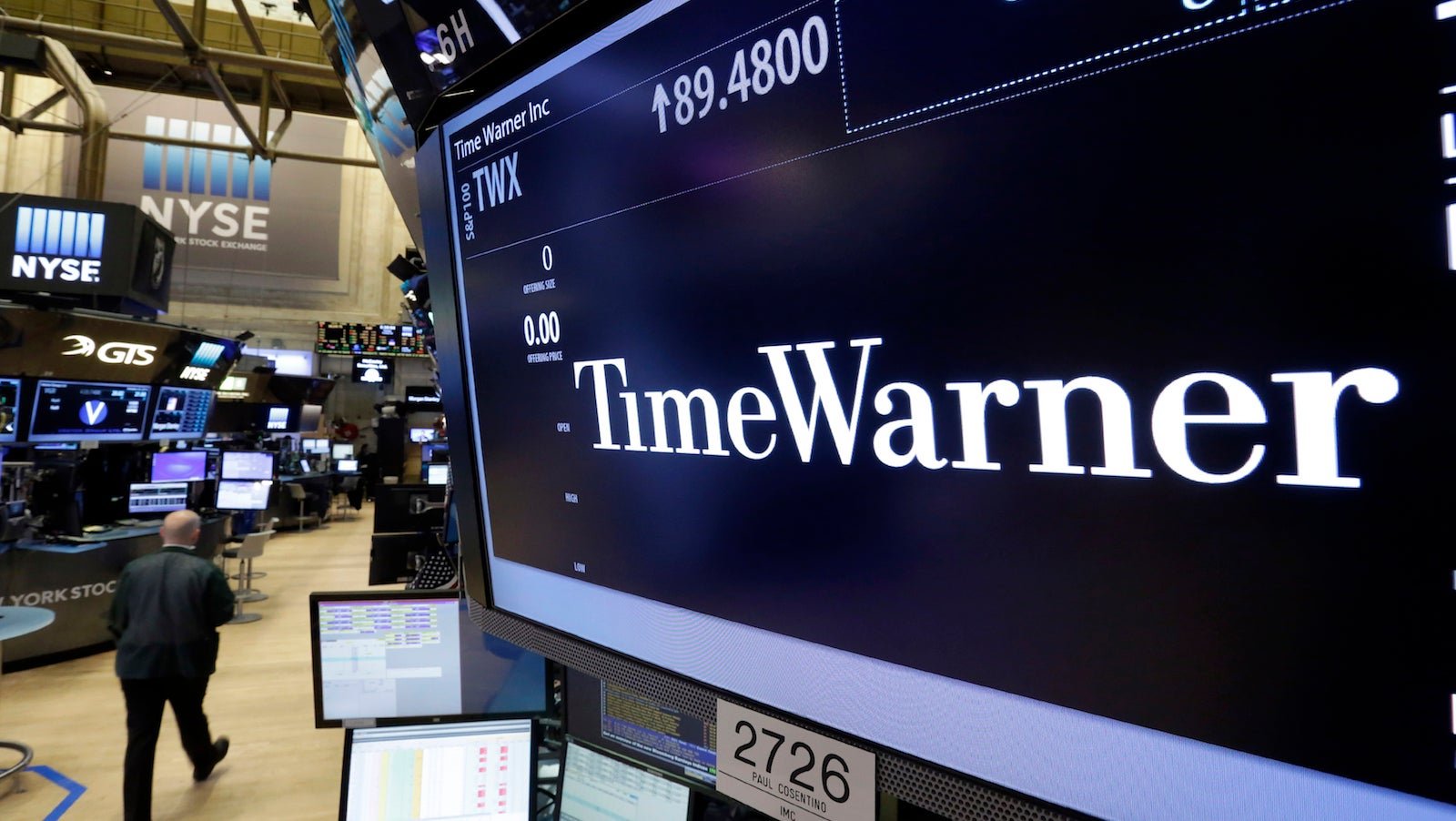Everything we know about the AT&T-Time Warner deal
Over the weekend, telecom giant AT&T reached a deal to buy content powerhouse Time Warner—owner of HBO, Turner, and Warner Bros. Entertainment—for $85 billion in cash and stock. The agreement has raised a lot of eyebrows because of its size and its potential implications for consumers.


Over the weekend, telecom giant AT&T reached a deal to buy content powerhouse Time Warner—owner of HBO, Turner, and Warner Bros. Entertainment—for $85 billion in cash and stock. The agreement has raised a lot of eyebrows because of its size and its potential implications for consumers.
Here’s what we know about it so far:
The terms
AT&T plans to pay $107.50 per share—half in cash and half in stock—for Time Warner, which represents a 20% premium over the company’s closing share price on Friday of $89.48. The rich price is a testament to the current value of premium video content, which media and tech companies have been gobbling up in an effort to meet the high demand from viewers.
The deal values Time Warner at $85.4 billion based on the common shares currently outstanding. The total price tag on the transaction will be $108.7 billion, including the assumption of Time Warner’s debt. The last time the media industry saw a larger merger was more than 15 years ago. That deal also involved Time Warner, which was scooped up for a cool $160 billion by AOL. It was a fiasco, though, and the company split in 2009.
The boss
AT&T chief executive Randall Stephenson will lead the combined company, the Wall Street Journal (paywall) reported. (The merger negotiations had reportedly been underway since August, when Stephenson approached Time Warner CEO Jeff Bewkes to discuss content and distribution, the publication said.)
Bewkes, 64, is expected to retire, but will remain with the company for a transition period. Bewkes said he expects the majority of Time Warner’s business and creative executives to stay with the company as well.
What AT&T gets from Time Warner
AT&T broke into the pay-TV ecosystem last year with the $49 billion takeover of satellite-TV operator DirecTV. The Time Warner purchase would further Stephenson’s agenda of transforming AT&T from more than just a telecommunications company into a major media conglomerate.
Dallas-based AT&T is eager to diversify as growth in the wireless business slows. Saturation in the marketplace and stiff competition from lower cost rivals like T-Mobile have taken their toll. The number of AT&T wireless subscribers with monthly billing plans has fallen for eight quarters straight.
But as Ben Thompson at Stratechery argues in a blog post (paywall), the recent trend among wireless carriers and internet providers to offer select data for free could give AT&T an edge. That’s if the company decides to make Time Warner programming exempt from its paid mobile data plans, as it has done with DirecTV. “This is almost certainly the plan for Time Warner content as well: sure, it will continue to be available on all distributors, but if you subscribe to AT&T you can watch as much as you want for free,” Thompson writes.
He also notes that the acquisition of Time Warner could boost AT&T’s dividend, which has increased at “minuscule” rates for years. Time Warner is expected to drive up AT&T’s earnings per share and free cash flow gradually over time, which could spur growth in AT&T’s dividend and, by extension, its stock price.
What Time Warner gets from AT&T
Time Warner has a strong library of content, but had been looking to broaden its audience and grow its streaming-video businesses like HBO Now, which is sold directly to consumers for $14.99 a month. AT&T’s relationships with its nearly 130 million customers could certainly help speed that process along.
The combined company could also take advantage of owning more pieces of the TV-distribution pipeline by creating new advertising models, which Time Warner already has experimented with on its own. TV generally commands the highest ad rates out there, but networks have had to get creative to keep advertisers, who are devoting more of their budgets to digital platforms.
Early reads on the regulatory response
There is still a lot that we don’t know about the AT&T-Time Warner deal, including whether it will even be approved by US regulators. Politicians including Donald Trump and Bernie Sanders already have spoken out against the merger and the overall wave of consolidation in the media, internet, and telecommunications sectors, since the announcement.
However, media analysts, including those at Pivotal Research, think the deal will likely be approved. Comcast took over NBCUniversal in a similar fashion in 2011, and later acquired DreamWorks Animation. The cable operator had to make concessions, but it was able to close the deals.
AT&T and Time Warner expect to close their proposed deal by the end of 2017.